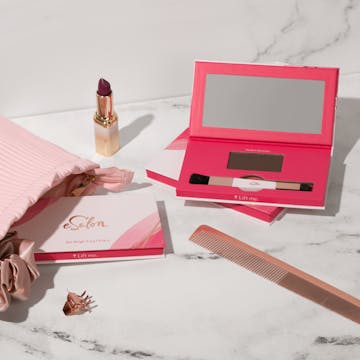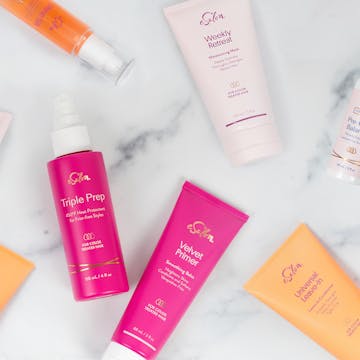Ask the Pros: Is It Bad to Sleep with Wet Hair?
Is sleeping with wet hair harmful or harmless? Our hair care experts reveal the truth, risks, and pro tips to keep your hair healthy overnight.
We’ve all been there—whether you’re showering after a long day, trying to save time in the morning, or just a creature of habit, going to bed with wet hair doesn’t seem like that big of a deal. Your stylist may have even warned you against going to sleep with sopping wet hair, but c’mon, how bad can it really be?
Well, we hate to break it to you, but falling asleep with wet hair can make a major impact on your hair and scalp wellness. So we sat down with our resident hair care experts to share some of the top three reasons you should not sleep with damp strands and how to limit the damage if you simply must.
Potential Risks of Sleeping With Wet Hair
Breakage & Split Ends
All of our hair care experts agree that the biggest reason you should skip sleeping with wet hair is breakage. The hair shaft is fragile when it’s wet, so it can only take so much friction against your pillowcase throughout the night before it breaks. Over time, this can lead to split ends, frizz, and seriously stressed-out strands.
Scalp Health Issues
Wet environments are where mold and bacteria thrive. When sleeping with wet hair, you run the risk of encouraging bacteria and fungus to impact the health of your scalp and hair. This can result in an itchy, irritated scalp or even dandruff. Plus, your damp pillows and bedding may become moldy, which can also disrupt your scalp’s microbiome.
Frizz & Styling Hassles
Another reason you shouldn’t sleep with wet hair? It can actually make your hair less manageable in the mornings. In the moment, it might seem like a time-saver, but you may wake up with some scary bedhead. We’re talking tangles, frizz, flyaways, and even breakage. By drying your hair before bed or showering in the morning, you can protect your hair from the damage of tossing and turning all night long—and prevent it from turning into one big rat’s nest.
Expert Tips & Recommendations If You Must Sleep With Wet Hair
Dry Hair Partially Before Bed
If you can’t avoid going to bed with wet strands, try to partially dry your hair before hitting the sheets. Aim for at least 80% dry at the roots for maximum benefits. While it’s not a perfect solution, this can help reduce some of the potential downsides, like frizz and bacteria growth.
Use a Silk Pillowcase
Friction with your bedding is one of the main reasons that hair gets damaged while you’re counting sheep. A silk pillowcase can help curb some of that friction while helping to lock in hydration. Not only is a silk or satin pillowcase good for your hair, it’s a great investment for your skin as it can help reduce the appearance of fine lines and wrinkles.
Braid or Loosely Tie Hair
There’s no doubt about it—wet hair gets super tangly while you’re snoozing. To prevent unmanageable knots from forming, loosely braid or tie your hair before hitting the hay. If you have particularly tangle-prone strands (like curly or wavy hair), this can even be a good practice for going to bed with dry hair.
Apply a Leave-in Conditioner or Protective Serum
To increase wet hair’s resilience overnight, try applying a leave-in conditioner or protective serum. This will help increase moisture and elasticity while combating some of the signs of bedhead like frizz.
So the results are in—no, you should not go to bed with wet hair. We hope this blog helps you understand some of the risks of sleeping with soaking strands while giving you expert tips for those times you just cannot avoid it.





